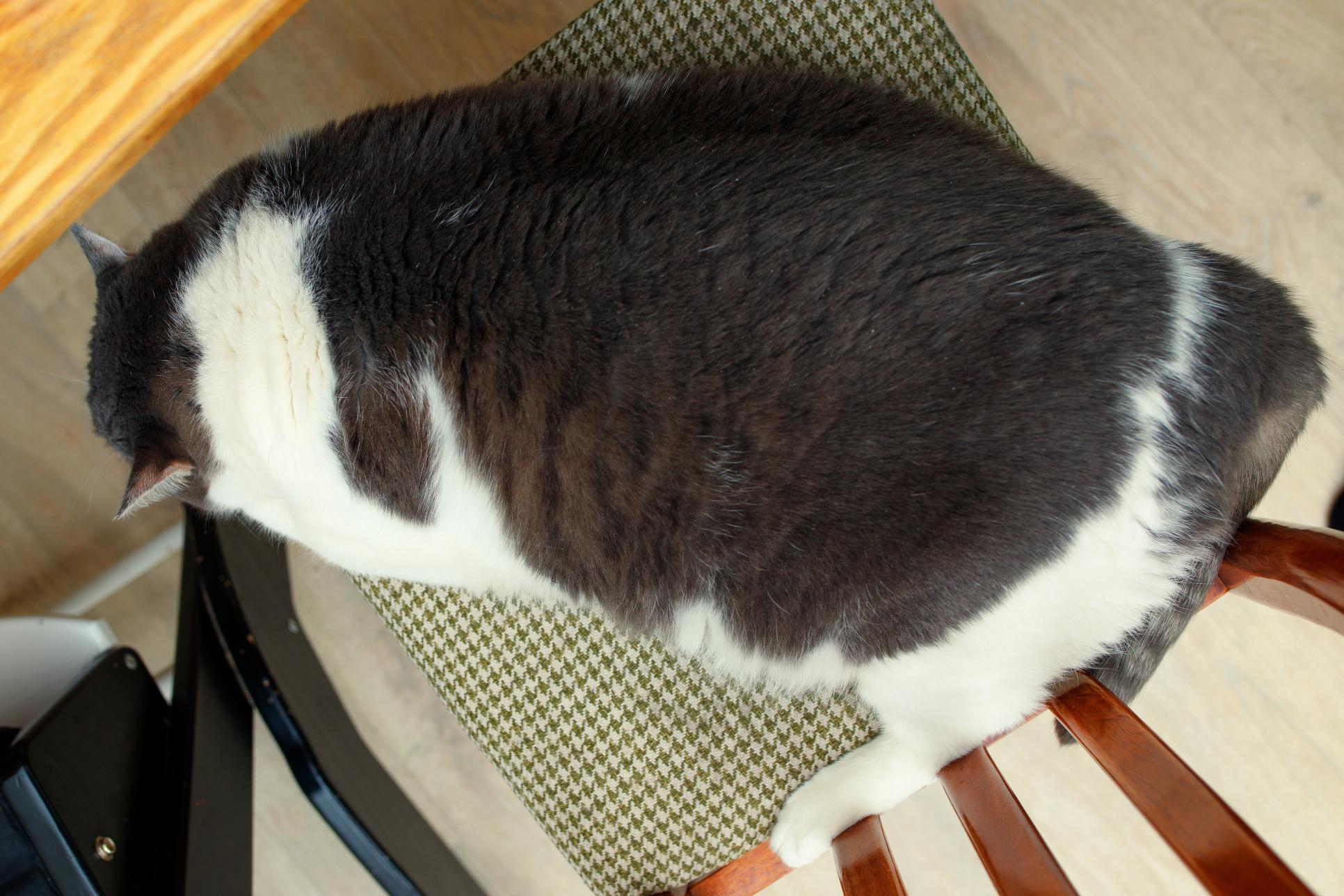Tackling the Growing Issue of Cat Obesity

While it can be tempting (and easy!) to spoil an adorable household cat with tasty treats, we know that excess weight can be downright dangerous for our feline friends. One of the most loving things you can do as a pet owner is help maintain your kitty’s weight and fitness!
Here’s what you need to know about preventing cat obesity for your pet’s best health:
Overweight Can Mean At-Risk
In some of the same ways as people, overweight cats are at risk for serious health issues, including heart disease, diabetes, and arthritis. For example, as the Cornell Feline Health Center cautions, “Obese cats are up to four times more likely to develop diabetes than ideal weight cats,” so the danger is real and measurable.
Even without a formally-diagnosed illness, kitties who carry extra pounds may experience shortness of breath, lack of energy, and generalized joint discomfort—all of which can just flat-out make life harder.
Being close to an ideal weight for your cat’s breed and body structure can give them the best quality of life, when it comes to both daily activity and long-term overall health.
Managing Weight Through Diet
Our pet cats have specific nutritional needs, and a diet rich in protein will help keep them healthy and feeling full. Look for a properly-formulated balance of protein, vitamins, and carbohydrates in any cat food that you choose; we’re happy to talk with you about picking what could be purr-fect for your best bud!
While some cats can manage appropriate meals via “free feeding,” or a consistently available full bowl of dry kibble, others will not be able to resist the abundance of a constant, on-demand feast. It’s also important to consider that canned food may help keep cats hydrated, especially if they’re averse to water bowls.
Therefore, it will likely be easier for you as a cat owner to track what your cat eats if you feed measured meals on a schedule. This works for canned food, dry food, or a mixture of the two. Then you can tell if your pet’s appetite has dropped if they’re starting to leave food behind in the dish. Conversely, you’ll see if they’re suddenly scarfing down food as soon as you put it in the bowl.
Vet visits and lab work can reveal whether there are conditions that would necessitate a specialized diet, such as a formulation for kidney health or for weight loss. We can talk about how much your cat should eat in a day, whether they’re already at a concerning weight or you’re working to prevent obesity before a problem arises.
You’ll need to track those treats, too! Consider snacks and treat rewards in the full scope of calorie intake. You may choose to portion out a certain amount of treats that you and your family can give throughout the day, just make sure that everyone knows that the pre-portioned amount is strictly set. Once the daily snacks are gone, bond with and reward your kitty through chin scratches and playtime instead.
Feline Fitness Can Be Fun
Speaking of playtime, exercise is the other vital piece of feline weight management. Muscles, joints, and organs will function at their best with appropriate physical activity. From kittenhood to those golden years, your cat will age with more agility and comfort with regular movement. Plus, chasing and pouncing on toys helps provide mental stimulation, so they’ll take out that hunting instinct on bouncy balls and stuffed mice instead of your furniture and toes!
A fit feline will have a tucked-in waist, which you’ll be able to see from overhead or from the side. When you pet them, you should be able to feel your cat’s rib cage under a layer of fur and skin; you should not have difficulty finding those ribs due to excess fat. So in addition to vigorous playtime, snuggles and pets can be an important part of managing fitness and tracking your cat’s weight loss.
Again, your veterinary team is happy to discuss what’s best for your pet, including what is safest and most effective when it comes to feline fitness. But we know for sure that 30 minutes a day of playtime with your cat is time well spent!
Let’s chat about your cat! Call Curem Veterinary Care at (480) 787‑0544 or visit us at https://www.curemvet.com/ to schedule your veterinary appointment today!
